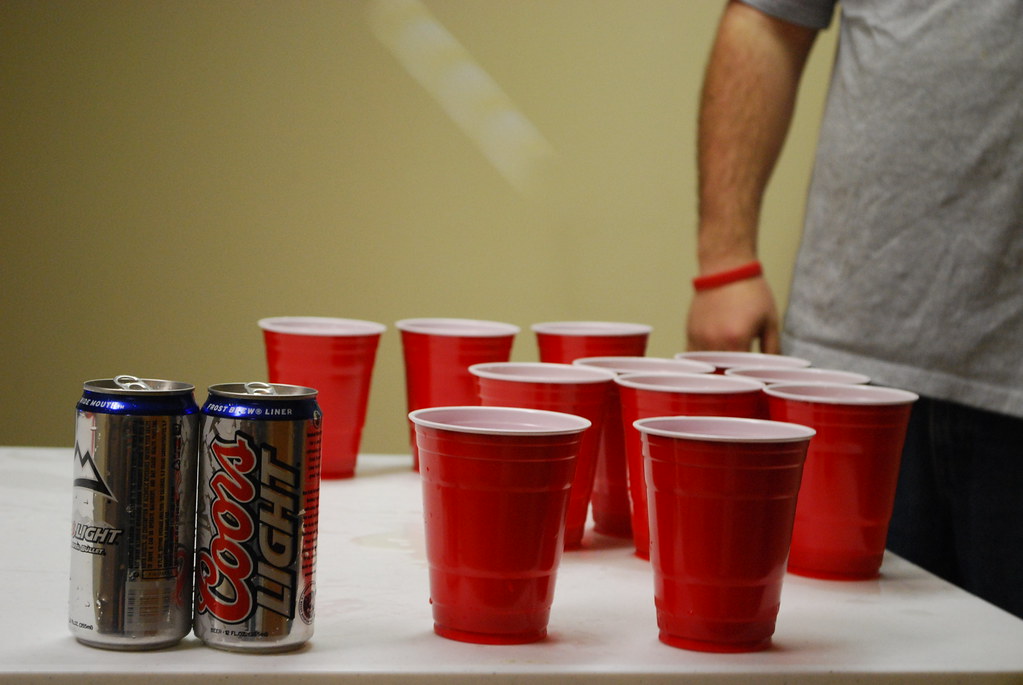The majority of our lives are spent in front of a screen, especially given the current circumstances. Due to the COVID-19 pandemic, classes, clubs, and socialization with friends have all moved online. For students, the typical university experiences of meeting people on campus, going out with friends, and attending parties have essentially disappeared from our everyday lives.
So, what now? Where does this part of social culture, and all the corresponding energy we put toward it as university students, go? When we are all collectively experiencing a sense of disappointment about how this year’s turned out, is there any space for us to channel this feeling into new connections, or to re-create what we’ve lost in some form?
Sororities and fraternities have been trying to make it work for new and returning members alike, and there are students like us behind this effort…
McGill’s fraternities and sororities are built upon the premise of networking, parties, and, at the base of it all, connecting with other people. All these factors become a challenge with physical distancing measures. It’s a struggle to get creative within our “new normal,” but many McGill groups have been adapting and re-imagining what it means to stay connected within the student community. Since the beginning of the COVID-19 pandemic, McGill’s Greek Life communities have been faced with the unique challenge of recruiting and engaging their members over Zoom. Sororities and fraternities have been trying to make it work for new and returning members alike, and there are students like us behind this effort; an effort that can inspire each of us in our own participation in McGill’s student culture.
Normally, McGill students gravitate towards Greek life in the hopes of meeting more people and making connections. For Sigma Chi president Matt O’Connell, a major factor in his decision to rush the fraternity was the fact that both of his frosh leaders were part of the chapter. He had been prompted to join the fraternity in frosh, another McGill social event that could not be held in person this year. Similarly, Rachel Feldburg, a U3 year student and member of the Gamma Phi sorority, joined in the winter of her first year after befriending some older girls in the sorority.
This semester, however, fraternities and sororities have been forced to adapt to rapidly changing restrictions and get creative with Greek life…from a distance.
For these two, and many others, the appeal of Greek life was the possibility of expanding their social network and making new friends in their respective fraternity or sorority. The beginning of this experience — sometimes referred to as rushing or pledging — is often the most important part. The start of the semester ordinarily means initiation, mixers, and bonding with first-year recruits, the promise of partying with newfound friends and reveling in the return to student culture.
This semester, however, fraternities and sororities have been forced to adapt to rapidly changing restrictions and get creative with Greek life…from a distance. For O’Connell, these last few months involved constant readjustment of the typical Sigma Chi experience to adhere to the government of Quebec’s regulations. Before the implementation of red zone restrictions, the fraternity had planned to do recruitment half online and half socially distanced in the park. However, the sudden announcement of the red zone restrictions meant that this year’s recruits would not have a “normal rush, but instead, everything [would be] on Zoom”, according to O’Connell.
Nowadays, these social events have moved to Zoom. Mixers, once a place to have fun and party, are now eighty-person video-calls, where people take turns speaking over one another by accident, or sometimes simply do not know where to begin.
The older McGill students in Greek life can’t help but feel bad for the new recruits, who “don’t get to meet as many people” and face a far more difficult challenge when it comes to meeting many of the interesting people that make up the student body.
One-on-one Zooms, designed to enable conversation and connection, begin to feel like formal, awkward interviews, especially when our hours in front of the screen already feel maxed out. Before the pandemic, Feldberg would go on retreats with her sorority that fostered new relationships and bonding among its members. Nowadays, these social events have moved to Zoom. Mixers, once a place to have fun and party, are now eighty-person video-calls, where people take turns speaking over one another by accident, or sometimes simply do not know where to begin.
Without roommates also in the sorority, which would make the feeling of being a part of Gamma Phi much more real, Feldberg is finding it difficult to get involved. Distanced social-life as a university student frankly sucks for everyone, first and fourth years alike, but the effort and the attempt at getting creative and connecting people is meaningful.
Distanced Greek life, though it may pale in comparison to what that element of student culture used to be like, is the manifestation of caring for our peers. It may appear shallow, but this act of trying to include others and make it work, despite how incredibly bleak and exhausting the act may feel amidst it all, matters. For Matt, when the “majority of recruits are young and missed out on Frosh, and other social aspects of the first few weeks of school”, asking “how to give them a similar experience,” one that tries to pass along the fun student culture, or, at least, a hope for its return, is valuable.
With no events, mixers, or philanthropy, members of McGill’s Greek community are challenged to remain engaged, and if people like O’Connell “can’t keep these fourth years engaged, how are [they] going to keep the first [through] third years invested?”
It’s up to us, in whatever way we can, to seek out creative ways to recreate the feeling of student culture that we all desperately miss. And when we feel the return of the exhaustion and despair, we have to push ourselves to remain receptive to other students reaching out to us. When we have no idea how long this “new normal” will last, and what student culture will look like at the end of this all, the act of caring and trying, despite all that is happening right now, is a new kind of difficult. And yet, even if it’s as simple as joining a Zoom organized by a fellow classmate every once in a while, the effort of re-engaging in our socially distanced student culture may be far more important than we think.








